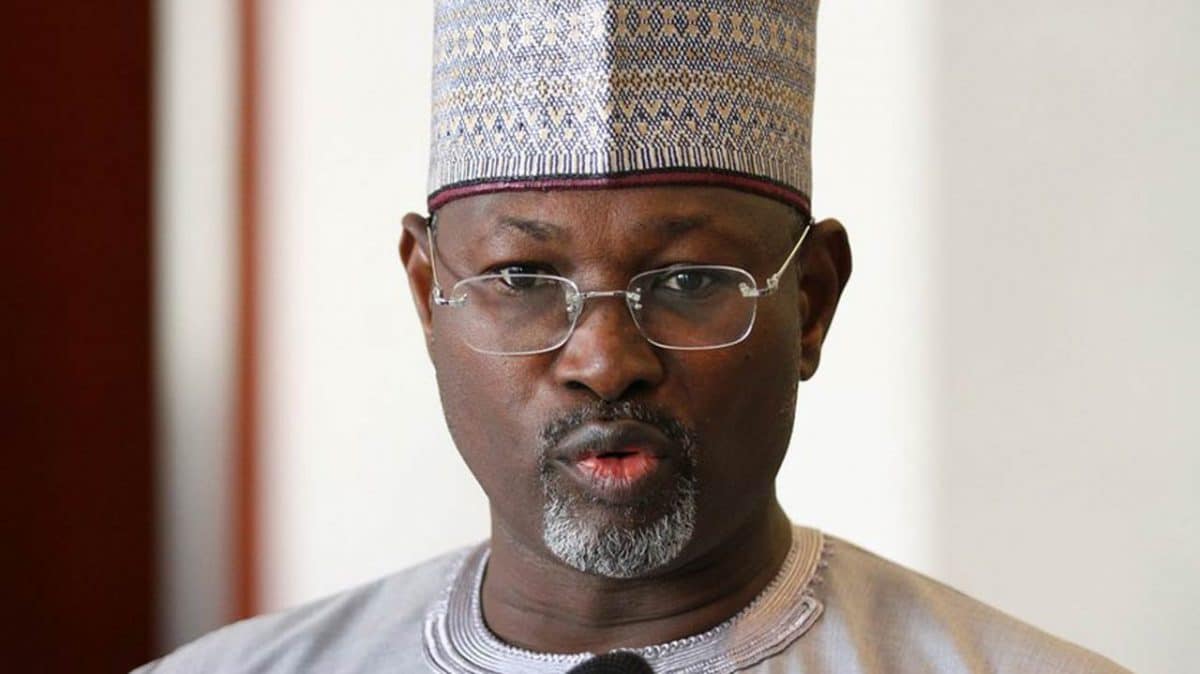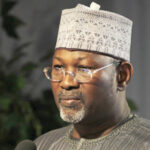Hardly anyone has thought seriously about this opening question in this election so far, and just maybe, not even the man himself. And yet, for a number of reasons that I shall put forth presently, there could well be many more than an outside chance for the answer to be in the affirmative. But the best place to start is to raise the question of why the original question itself has not even been raised seriously before?
Nigeria is once again at a crossroads. Everywhere you turn there are serious problems screaming for radical attention, from insecurity and the economy to the basic question of food on the table for millions of families. Even the very idea of Nigeria has never been this much challenged as in the past few years. In short, Nigeria is begging for a new kind of leadership and a new set of leaders at all levels with new ideas and the ability to change our collective fortunes. Yet, looking at the political environment today, who will know that elections for new leaders are coming up in just about 10 months?
- Many killed as bandits attack 4 Plateau villages
- Ramadan: We’re given food once a day, Kaduna IDPs cry out
The answer is simple. Nigerian democracy is like constipation: the bowel is filled to the brim, but releasing it is so difficult. In an ideal election situation, the most important job of recruiting new leaders into the process is carried out simultaneously by political parties and citizens or citizens’ groups. Unfortunately, the political field is dominated by an over-bloated ruling party, an unserious main opposition party and a handful of politicians perambulating around the two. The lack of internal democracy and the influence of money politics within both major parties ensure that the door is effectively shut for new faces or new ways of doing politics.
On the other hand, citizens play almost no active part in the electioneering process other than voting. For their part, civil society organisations have done an enormous amount of work towards improving Nigeria’s democratic system in recent years and with considerable success. But most of this work is in relation to structural changes such as the electoral law, rather than direct involvement in civic activities like recruiting and injecting new sets of leaders or voters into the system. The result is that by Election Day, the choices available to voters have long been decided. This is how the same faces keep circulating without end in the system and explains why other possibilities are effectively shut outside of the electoral radar, however competent or good for the moment they may be.
This brings us to the original question. There are at least four reasons why I think Jega stands more than an outside chance to become Nigeria’s president next year. First, the political conditions of 2015 are still relevant today. The most important change in that election actually took place before any votes were cast. Somehow, there emerged a consensus among Nigerians that we needed to change the way we govern ourselves and a realisation that this was actually possible through the ballot. It was not just the government of the day that people wanted to be changed; it was the mode of governance in its entirety.
Buhari, because of his antecedents up to that point, merely personified this need for change at the time and his party, the APC, sold itself well enough as the veritable vehicle for this change. There is hardly any doubt that we are now back to where we were seven years ago, if not more intensely so. In other words, the collective yearnings for a new way of doing things in Nigerian leadership remain true in 2023 as it did in 2015, no thanks to the glaring failures of this government. Depending on other factors, this gives a Jega candidacy a good starting point to leverage upon.
Second, Jega is not Buhari. Or to put it differently, Jega is Buhari+. Jega is Buhari without the negativities of religious fanaticism, age or whatever; a Buhari with the actual clues to walk his talk. Anyone who can fix Nigeria’s elections from where they were in 2007 can fix the whole country too. First, many Nigerians have always sought to explain Buhari’s famed popularity among northern voters between 2003 and 2015 as a function of religion. This is not true, of course, but it made sense to a lot of people at the time. But Buhari’s popularity among northern voters was always based on his populist anti-establishment, welfarist and pro-poor credentials, not religion, however, misguided anyone might now think these were. These were more or less the same credentials that got the late M.K.O. Abiola the northern vote, especially as they came garbed in the flag of a genuinely social democratic party in 1993.
Now, in the context of the 2023 elections, the most important strategic question for any party or candidate is this: who will skim off a majority, if not all, of Buhari’s core 12 million voters? These voters remain the most important prize in this election as they were in 2019, but not so much in 2015. Depending on other factors, particularly the slate of candidates thrown up by the major parties, I doubt if religion, region or ethnicity will be enough for any candidate to take over this most strategic election prize. With the right amount of work and strategic direction, I can’t see any candidate in any party currently in this election that can beat Jega to this prize.
Third, Jega’s Peoples Redemption Party, the PRP, is possibly the oldest and most credible political party in Nigeria today. It is also the party that best spouses the same populist anti-establishment and pro-poor credentials that had won Buhari his committed core of supporters. Is the PRP a veritable vehicle for winning a presidential election in Nigeria today as the APC was in 2015? The answer is no. But it could be.
This brings me to the final and perhaps the most important reason: Jega’s candidacy can benefit from many important things in the current electoral system. The first is the new electoral law, which provides opportunities for any new candidate or party. Because of the limitations of previous versions of the electoral law, election campaigns in Nigeria were effectively reduced to a lot of noise at rallies and in the media. The new law means candidates and parties can actually mount a different sort of campaign to connect directly with voters about what they intend to do in government and how, even without tons of money. In fact, it can even raise funds and bring in a few billionaire supporters if it can also come up with some pro-business policies. After all, as the UK Labour Party has shown, a party can still be pro-business and pro-poor at the same time.
The two leading parties are also sleep-walking towards implosion, which will give a third party, with a clear strategic plan to make inroads and draw enough support to win or cause problems. In short, a Jega candidacy along these lines should probably have started two years ago, given the enormous amount of work required. Still, it is not too late because what has not been tried cannot be denied outright.

 Join Daily Trust WhatsApp Community For Quick Access To News and Happenings Around You.
Join Daily Trust WhatsApp Community For Quick Access To News and Happenings Around You.


